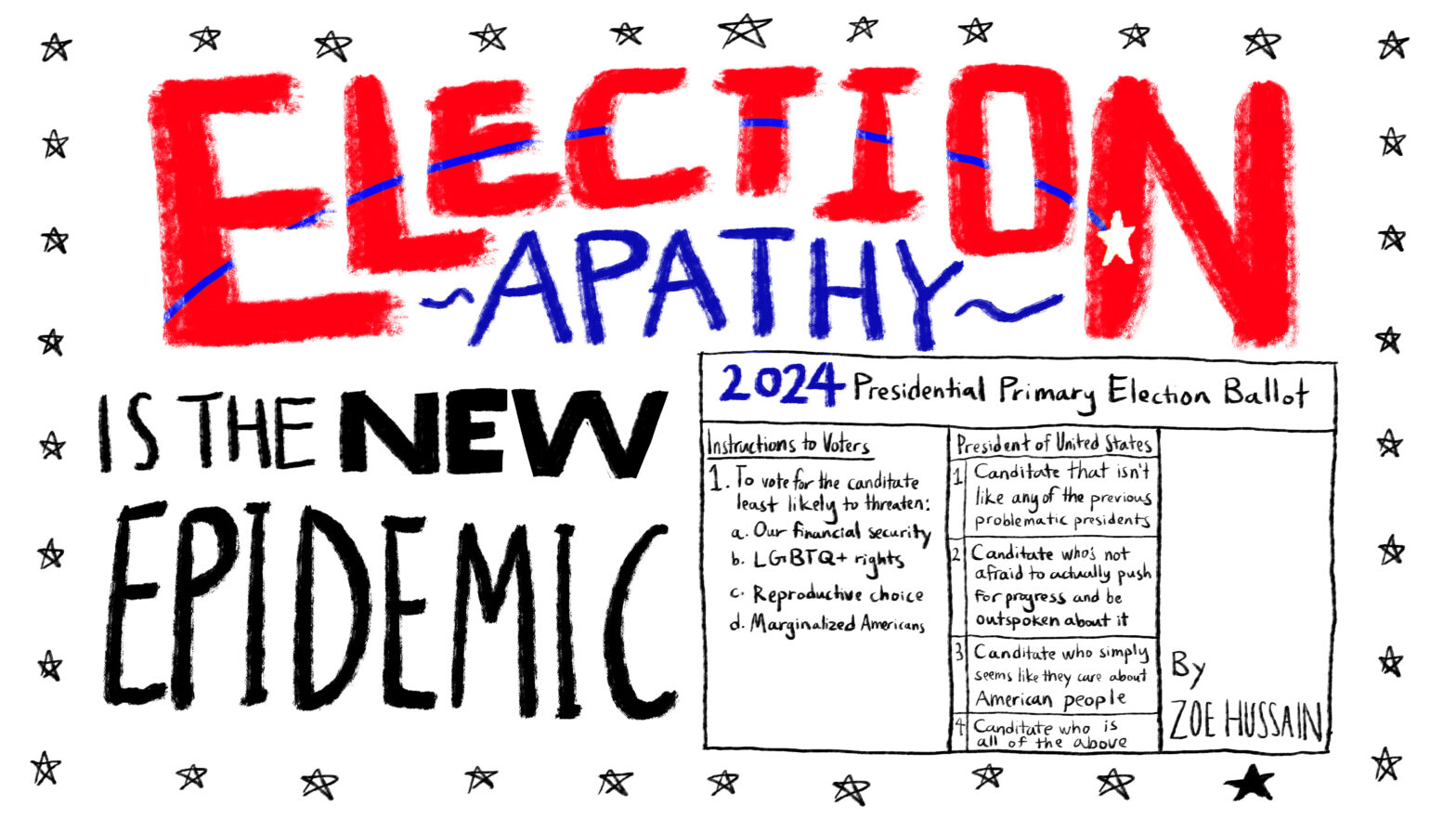It’s no secret young adults are disillusioned about the state of American politics. In 2020, 18-29-year-olds were the demographic most likely to vote for Joe Biden. But as we approach the 2024 presidential election, they are the demographic that has shown the biggest drop in support of him. With faltering approval of their Democratic frontrunner, it’s questionable whether young Americans will have as substantial of a voter turnout as they did in 2020.
According to FiveThirtyEight’s Presidential Approval Tracker, just 38% of 18- to 29-year-olds now approve of Biden. This isn’t drastically different from older voters, but young adults’ reasons for their disapproval expose our country’s foundational struggles. Concerns about financial independence, women’s reproductive rights, and anti-LGBTQ+ legislation define an administrative failure to establish faith in our future.
Sydney White, a junior at Eugene Lang College of Liberal Arts said, “This is going to be my first time being able to vote in a presidential election, which I used to be really excited about, but I feel like over time, it’s become more of a question of who is the least bad option.”
As we look across the aisle, there isn’t much to be illuminated. When I watch the Republican Party debates, I find it difficult to discern the whispers of policy plans over all the booing and “donald duck” jabs from Chris Christie. Vestiges of Trumpism leave many young Democrats in a state of political paralysis. There’s no reason to watch if you don’t want to be reminded of the tense and traumatic moments of the 2020 presidential election. The Jan. 6 insurrection is the key moment my peers and I wanted to pull away from politics as the best way to save ourselves from the disparaging reality of news.
The logical answer, to most, is to stop caring. After all, why care when there is no one to believe in? Apathy is an excellent absolvement. It shields us from reality.
But what if we stopped looking at apathy as the most obvious way to cope? What if we used it as a starting point to reimagine what we want our country to look like? What would it be like to feel something other than dread?
When interviewing students at The New School about their preferred presidential candidate, the majority said something along the lines of “Biden… I guess.” But I was curious what things would look like if Gen Z felt they had more of a choice in the names on the ballot, if they were given the power to reimagine their future.
Among the more eccentric answers I heard were Kim Kardashian and David Bowie (because no one alive seemed fitting for the role). More practically, politicians and public figures like Gretchen Whitmer, Issa Rae, and Kerry Washington were nominated for the role.
Others like senior Andrea Tlawilo, were unsure who they’d choose. “With the way our world is going right now, I just don’t know,” she said.
However, all these students were able to identify what qualities they would admire in a potential presidential candidate. They were able to say with justification, that there were issues this country needs to and can address if someone fitting for the role were to be a candidate.
“I want somebody who’s not afraid to actually push for progress and be outspoken about it,” White said.
When implored to think about what makes the ideal candidate, the priority is to find someone who simply seems like they care about the American people. What we are searching for is the antithesis of apathy. So why do we seem to be so comfortable with our own?
When we acknowledge this apathy comes from fear of repeating history, we can get more comfortable with the idea of rewriting it. Voting for the default doesn’t have to feel like settling when we realize political participation is inherently diluting the power of those across the aisle who are threatening our financial security, LGBTQ+ rights, and reproductive choice.
Apathy isn’t an absolvement but rather a way to guarantee responsibility is placed on the presidential candidates we are most afraid of.







